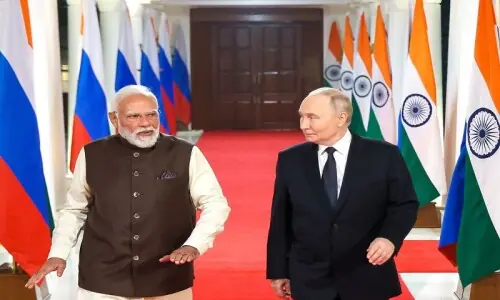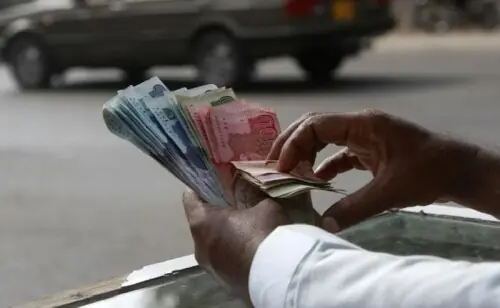
“I asked ten of my staff which of them beat their wives. Nine of them said yes. The tenth was lying”.
These were the words of Canon Andrew White, otherwise known as “The Vicar of Baghdad” when explaining the scale of the problem of domestic abuse in Iraq. The story was the same wherever I asked. The British Ambassador glumly observed that 50 per cent of Iraqi women think it’s OK to be beaten. And everyone spoken to said this was an increasing “post-2003” problem.
My urge to put pen to paper is often sparked by a deeply felt need to present balance. More than once I have shone a spotlight on the positive side to places like Pakistan and Iraq – who are faced with a single media narrative, which usually views the countries through a prism of security and terrorism and rarely of hope and potential. However, there are some less positive issues which are neglected by the media: The plight of the Tamils in Sri Lanka; The Rohingyas in Myanmar; The women in Iraq are all good examples.
Shatha Al-Abosi is a smart woman. Her small frame and traditional dress do not mask her massive determination and passion for the liberation of women. The winner of the 2007 Woman of Courage Award claims to have survived five attempts on her life. Shatha is a women’s rights advocate – and one of a number of impressive, resilient women we met in Baghdad. Another woman all in black tells us she has lost a son and other family members and is committed to lobbying for human rights. Next to her, a lawyer with pink lipstick tells us of her commitment to change. A third, fourth and fifth woman tell us more. The delegation I am travelling with are visibly impressed and we all comment that the women appear as articulate, educated and informed (if not more) than many of their male counterparts.
And yet, all evidence suggests that despite being the givers of life in a country so familiar with death, despite being the source of comfort and nurture – Iraqi women are not cherished and valued in society. Any progress involving women in a future Iraq is undermined by the fact that she is being beaten at home.
The Observer newspaper this weekend published a report on the “Super Wealthy War Babies” of Vietnam. Female entrepreneurs now own 25 per cent of all private enterprises in Vietnam – Asia’s fastest growing economy after China. In another post-conflict country, Rwanda, women make up 56 per cent of Parliament. There is growing evidence to suggest that the oppression of females in a society attempting to recover from an episode of extreme violence is not just a morally wrong idea – it’s a bad idea.
I spoke to Frances Guy, UN Women representative in Iraq about legislation to address domestic abuse. She explained that whilst Kurdistan had passed a law on domestic violence in November 2011, the problem is that it relies on private prosecution so the number of cases has been extremely limited. She explains, “This was similar in many countries in Europe until relatively recently when legislation was changed to allow public prosecution – only at that stage was real progress made”. At a national level, the Iraqi government has recently endorsed a strategy for combating violence against women. The test will be to see if there is an accompanying implementation plan and resources allocated to the process.
The Organisation of Women’s Freedom in Iraq (OWFI) highlights the loss of males due to conflict as leaving more than 3 million women and girls with no source of income or protection, thereby turning them into “a helpless population which is deprived of all components of human dignity”. The loss of so many Iraqi men is a tragedy that this century will be remembered for – but I wonder whether it is possible to apply some lessons from Vietnam and Rwanda and explore where equality can flourish out of the ashes?
The official statement from the OWFI packs some real punches and points a finger directly at corrupt “human beasts” in Iraq who ignore issues of trafficking, sexual exploitation and polygamy. Wealthier women may escape these issues, they say, but they are plagued by “honor killing, wife battering, unequal inheritance, and unequal testimony in court”.
As we look at what’s wrong, it is healthy to examine what is better. Frances Guy reports that there are some “very positive developments” as publicly funded shelters for victims of violence are set up and a new directorate for combating violence against women has been established in the Ministry of Interior in Kurdistan. She feels that there is now more of a chance that such shelters can be set up in the rest of Iraq, using the Kurdish model.
I quote the Vicar at the beginning of this article because violence against women is not a religious problem. It is not endemically Islamic as some have claimed. I am reminded of a South Asian billboard shared on Facebook which read “Mohammed (pbuh) never hit a woman”. Violence against women is a human problem that requires a legislative, but also a human response.
To raise a hand or foot or stick to a women betrays a personal and societal tragedy. However, with a massive youth population (over 50 per cent under 18), with economic recovery (set to grow by 14 per cent next year), with some examples from other countries to learn from, and with the determination of some exceptional woman like Shatha, there is real hope for improvement in Iraq. A strategy for combating violence against women is a start.

The views expressed by this blogger and in the following reader comments do not necessarily reflect the views and policies of the Dawn Media Group.


































